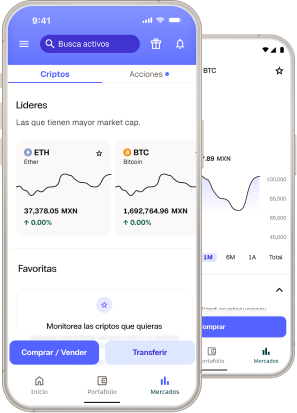Investment fraud has become a widespread problem in recent years. As the popularity of cryptocurrency and other investment strategies grows, we are seeing an increase in the number of fraudulent schemes that try and many times succeed in taking advantage of people’s trust to pocket their hard-earned money.
The reality is that anyone can become a victim of investment fraud. Whether you are a seasoned investor or a beginner in the finance world, you need to be aware of the fraudsters tactics in order to protect yourself.
In this blog post we will discuss investment fraud, how it happens, and how to identify it and prevent it.
What is an investment fraud?
An investment fraud is when someone lies or deceives people into investing their money into a fraudulent scheme or a false business. Fraudsters often use different tactics to make their victims believe that they are investing in a legitimate business, when they are actually investing in a Ponzi or a pyramid scheme.
Ponzi schemes operate by offering high and unrealistic returns to entice new investors to join in, but in reality, the returns are paid for with the money coming in from new investors.. In a pyramid scheme, as in a Ponzi scheme, the alleged earnings come from the money put in by newer investors, but in this case each investor needs to recruit a certain number of newer investors in order to get their returns. In neither case do the returns come from legitimate business activities or profits.
How does investment fraud happen?
Investment fraud can happen in a variety of ways. Fraudsters often use phone calls, emails, and social media to contact potential victims. They may use fake identities or impersonate legitimate investment companies to gain credibility and trust.
Once they have gained the trust of their victims, fraudsters often ask for money upfront, promising high returns on the invested amount. They may even go as far as creating fake documents and websites to make the scam seem legitimate.
How to identify investment frauds?
It is crucial to identify investment frauds early to avoid falling prey to it. Here are some warning signs to look for:
- High returns with low risk: Investment opportunities that promise unrealistic high returns with low risk are most likely to be a scam.
- Pressure to invest: Fraudsters often put undue pressure on investors to invest as soon as possible. They may use tactics like limited time offers or exclusive opportunities to make them believe that they might miss out.
- Fake credentials and promises: Fraudsters often misrepresent themselves as legitimate investment companies, using fake credentials and promises to coax investors into investing their money.
How to prevent investment fraud?
Preventing investment fraud requires awareness, caution, skepticism, and patience. Here are some steps to take to prevent investment fraud:
- Do your homework: Research the investment opportunities, including the backgrounds of the people and companies involved, the investment terms and strategies, and any relevant financial statements and reports.
- Beware of scams: Be aware of the warning signs of investment fraud and exercise skepticism. If something sounds too good to be true, it probably is.
- Seek professional advice: Seek advice from a trusted advisor or financial professional before investing your money.
- Spread the word: Report any fraudulent activities to the relevant authorities and warn your friends and family about investment fraud.
Conclusion
Investment fraud is a serious and prevalent problem that affects individuals and businesses worldwide. As investors become more aware of the tactics employed by fraudsters, it will become more difficult for these scammers to victimize people. Understanding what investment fraud is and how it works, as well as keeping an eye out for warning signs, can help investors avoid becoming victims of fraud. Remember to exercise caution, skepticism, and due diligence, seek professional advice, and report fraudulent activities to the authorities.

